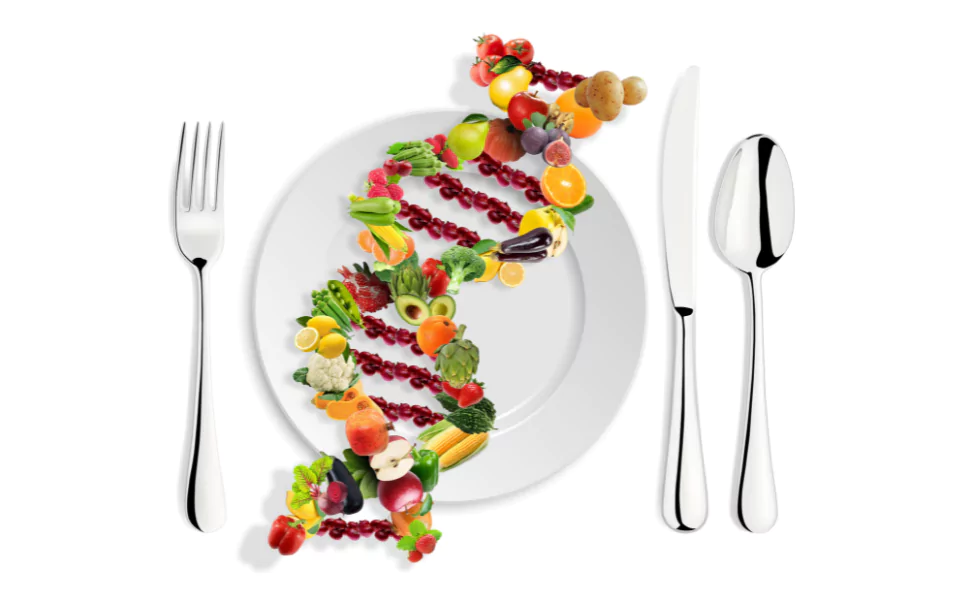Have you ever wondered why some people love pineapple on their pizza while others shudder at the thought of it? The answer to this fascinating question lies in the complex interaction between our genetic makeup and sense of smell. Indeed, your taste perception and food preferences are not just a matter of personal choice; your genes influence them. This fascinating field of research is called nutrigenomics and explores the complex connection between genetics and our food choices. This article will explore nutrition, exploring how genes shape our food preferences and eating habits.
The Genetic Influence on Food Preferences
- Environmental Factors: Our food preferences are shaped by a combination of factors, and genetics play an important role. Environment, including eating habits, health status, and cultural influences, determines what we like to eat.
- Past Experiences: Personal experiences with food, such as positive or negative associations, can impact our food preferences. For example, if you had a bad experience with a particular food as a child, you may develop an aversion to it as an adult.
- Genetics: Genes, however, are the fascinating piece of the puzzle. They play a role in developing your sensory perception of food, especially flavor. DuPont chemist Arthur Fox discovered the relationship between genetics and taste perception in the 1930s.
The Discovery of the Genetics of Taste
The story of the link between genetics and taste perception begins with an accidental discovery in the laboratory. In an experiment involving crystalline PTC (phenylthiocarbamide), some of Arthur Fox’s colleagues experienced a bitter taste, while others experienced no taste at all. This marked difference in perception has led to extensive consideration of the role of genetics in taste perception. Interestingly, this discovery has identified genetic variations that influence our ability to taste certain compounds, such as PTC and PROP (6-n-propylthiouracil). Individuals carrying certain genetic variations are more sensitive to bitter tastes, while others are less sensitive, and this genetic variation significantly influences food preferences.
The Role of Nutrigenomics
Nutrigenomics is the branch of science that studies how our genetic makeup interacts with our diet. He studies the impact of specific genes on our response to different nutrients and how our food choices influence gene expression. Here are some key aspects of nutrition:
- Personalized Nutrition: Nutrigenomics allows for personalized nutritional recommendations. By analyzing an individual’s genetic profile, experts can provide dietary advice tailored to their unique genetic makeup. This can lead to more effective eating plans and better health outcomes.
- Dietary Habits: Research shows that genetics affects taste perception and influences eating habits. Factors such as portion size, calorie intake, and macronutrient preferences (protein, fat, carbohydrates) are all influenced by our genetic makeup.
- Health Implications: Understanding the genetic basis of food preferences and eating habits has important implications for health. It can help identify people who may be susceptible to certain diet-related health problems and guide interventions to reduce these risks.
- Growing Field: Nutrigenomics is a growing field in today’s scientific landscape. Genetic research and technological advances have paved the way for more precise and personalized dietary recommendations, promising to improve public health.
Real-World Applications
The knowledge gained from nutritional genetics has practical applications in many different aspects of life:
- Dietary Recommendations: Nutrigenomics can provide personalized dietary recommendations, helping individuals make choices tailored to their genetic predispositions. This can lead to better weight management, metabolism, and overall health.
- Health and Disease Prevention: By understanding the genetic factors influencing dietary habits, healthcare professionals can tailor their interventions to prevent or control diet-related health problems such as obesity, diabetes, and heart disease.
- Food Industry: The food industry can use nutritional genomics to develop products tailored to specific genetic profiles, providing consumers with more personalized and health-conscious choices.
- Public Health Policy: Nutrition research can inform public health policies and initiatives aimed at reducing diet-related health disparities and improving the overall health of populations.
The genetics of taste and the emerging field of nutrigenomics are transforming our understanding of food preferences and eating habits. While environmental factors and past experiences continue to shape our culinary choices, our genetic makeup adds a fascinating layer of complexity to the equation. The discovery of genetic variations in taste perception has paved the way for personalized nutritional recommendations and interventions that can lead to healthier and more informed food choices. As nutritional science continues to advance, it promises a future where our diets are delicious and precisely tailored to our unique genetic makeup, supporting optimal health and well-being.


